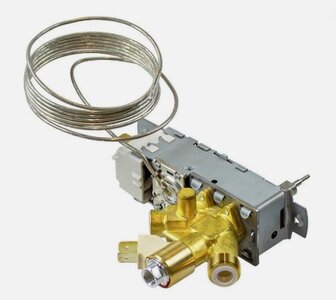It does not actually say that, you have used a bit of license there.
work” in relation to a gas fitting includes any of the following activities carried out by any person, whether an employee or not, that is to say—
(a)
installing or re-connecting the fitting;
(b)
maintaining, servicing, permanently adjusting, disconnecting, repairing, altering or renewing the fitting or purging it of air or gas;
(c)
where the fitting is not readily movable, changing its position; and
(d)
removing the fitting;
but the expression does not include the connection or disconnection of a bayonet fitting or other self-sealing connector.
You then need to look at the word ‘fitting;’ in the text of the regulations.
gas fittings” means gas pipework, valves (other than emergency controls), regulators and meters, and fittings, apparatus and appliances designed for use by consumers of gas for heating, lighting, cooking or other purposes for which gas can be used (other than the purpose of an industrial process carried out on industrial premises), but it does not mean—
(a)
any part of a service pipe;
(b)
any part of a distribution main or other pipe upstream of the service pipe;
(c)
a gas storage vessel; or
(d)
a gas cylinder or cartridge designed to be disposed of when empty;
Neither the thermocouple or the switch come in this category. Therefore, I stand by my comment in post #29
Alway wise to quote regs verbatim.
However. I fully agree that work should only be undertaken by a competent person. And, where it involves gas fittings as described above. A person with the relevant qualifications for that gas category.
John


